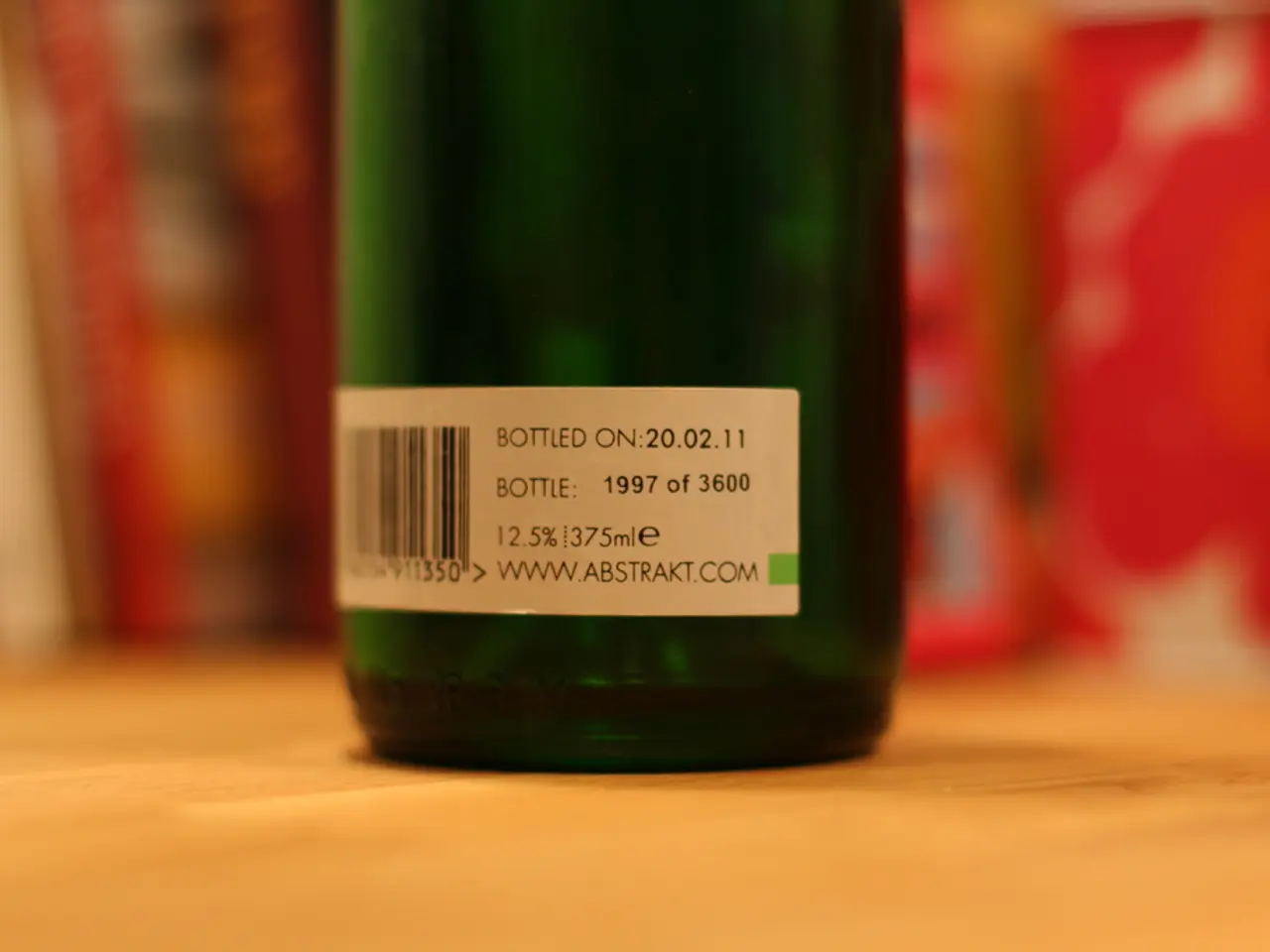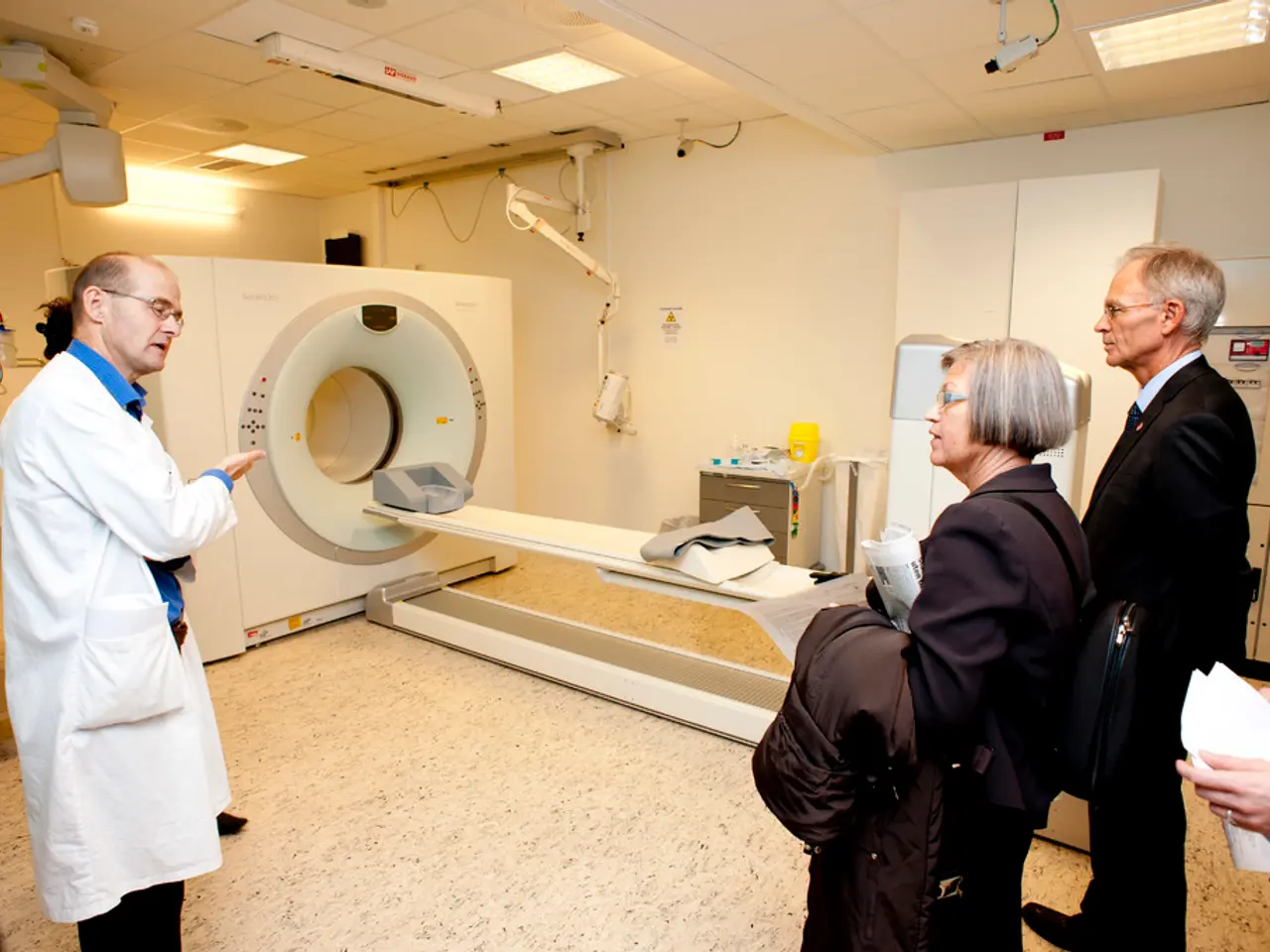A sweetener akin to 'miracle grow' in its impact on colon cancer tumors
A recent study has shed light on a potential link between the consumption of high-fructose corn syrup (HFCS) and the development and progression of colorectal cancer (CRC). The research, conducted on mice with early-stage intestinal tumors, suggests that HFCS may contribute to CRC growth.
The study was carried out using a mouse model of early-stage colon cancer, created by deleting the gene for a protein known as APC. Mice given water sweetened with HFCS developed tumors that were both larger and more deadly than those in mice drinking regular water, after just two months.
The tumors in the animal models were found to absorb and metabolize both the fructose and glucose found in HFCS, using them as a source of energy to fuel their growth. Furthermore, the tumors could chemically alter the fructose to produce fatty acids, allowing them to grow at an accelerated rate.
These findings suggest that the consumption of HFCS may contribute to the development and progression of colorectal cancer. The study's findings also imply that HFCS may have a direct impact on CRC growth, independent of obesity.
In humans, high consumption of ultra-processed foods, which often contain HFCS, has been linked to increased colorectal cancer risk and precursors such as adenomas and serrated lesions. Epidemiological studies show that men who consume the most ultra-processed foods have a significantly higher risk (29% increase) of colorectal cancer, which is not fully explained by BMI, nutritional quality, or other dietary factors.
Mechanistically, fructose metabolism occurs primarily in the liver, leading to metabolic disturbances such as lipid accumulation, insulin resistance, and inflammation, which are risk factors for cancer development. HFCS consumption is associated with elevated inflammatory markers like C-reactive protein, linking it to chronic disease and potentially cancer progression.
Dr. Lewis Cantley, a cancer researcher, emphasizes that many studies have correlated increased rates of colorectal cancer with diet, but this study provides a molecular explanation for the link between sugar consumption and colorectal cancer. Dr. Jihye Yun, another researcher involved in the study, suggests that chronic consumption of sugary drinks can shorten the time it takes cancer to develop.
The link between sugary drinks and colorectal cancer is not solely due to obesity, as previously thought, but may be due to HFCS. A study by Baylor College of Medicine and Weill Cornell Medicine supports this, linking the consumption of sugary drinks, such as soda and juice, with an increased risk of colorectal cancer.
In conclusion, the study provides evidence that HFCS promotes colorectal cancer growth in mice by enhancing tumor size and grade. In humans, high intake of HFCS-containing ultra-processed foods correlates with increased risk and early precursors of colorectal cancer, likely through metabolic and inflammatory mechanisms. The researchers' findings in animal models suggest that avoiding sugary drinks could help prevent the development and progression of colorectal cancer.
This study implies that high-fructose corn syrup (HFCS) may directly impact the growth of colorectal cancer (CRC), independent of obesity, in a mouse model of early-stage colon cancer. The findings also suggest a potential link between HFCS consumption and the progression of CRC in humans, as high intake of HFCS-containing ultra-processed foods correlates with increased risk and early precursors of colorectal cancer. Furthermore, this research supports the idea that avoiding sugary drinks could help prevent the development and progression of colorectal cancer. Therefore, maintaining a balanced diet that focuses on health-and-wellness, fitness-and-exercise, and nutrition, while limiting medical-conditions related to high-sugar intake, such as CRC, is crucial for overall health.




